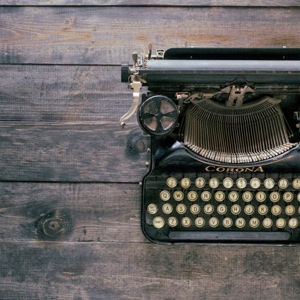Democratic societies are in trouble. Don’t just take my word for it, look at two of the world’s leading democracies; the U.S. and the U.K. In the U.S., seventy-four million voters chose to re-elect Donald Trump. This, notwithstanding the dire need of so many of those same millions to have a real champion to enter the fray on their behalf. Instead, they chose as their knight in shining armour a self-obsessed, humourless jester, mounted backwards on a gilded ass, gaze firmly fixed on a mythical past, with all of its hatred. Decency won the day, but barely.
In the U.K. they chose a slightly more affable and slightly less incompetent clown, but who came with his own Dark Lord, Dominic Cummings; a man so engrossed in persuading voters that their baser instincts were so all important, that his soul ended up in lost luggage somewhere. Together, they got Brexit done. An almost incomprehensible policy of searching for the supposed glories of the past, but the achievement of which required the abandonment of economic common sense and, far more importantly, discarding the future of culture and cooperation. Both of which are fundamental to the upward path of civilisation. As silly old fogeys, they deprived their youth of a large part of the adventure of life. The intent in both States seemed to be the annihilation of whichever of our Better Angels still persist.
Big Tech, whilst not the sole contributor to such democratic lunacy, plays a very large part in the current maelstrom of dysfunction. In my lifetime (a long one), I have never known a key industry to be allowed such freedom in terms of self-regulation, but that is what is happening in the tech corporations. There are hopeful signs that we are starting to catch up. In America, a number of State Prosecutors have resuscitated the antitrust laws, designed originally to break up the monolithic power of corporate cartels such as Standard Oil and AT&T. These laws have in effect been dormant since Reagan and Thatcher discovered that an eternally recognized vice could easily be changed into a virtue by the simple expedient of preaching that ‘Greed is Good’. Europe, on the other hand, is in the process of introducing very harsh penalties for allowing blatantly untrue, or damaging, information to be spread on social media sites.
This is progress, but still leaves self-regulation as a central concept. According to the Social Media purveyors, this regulation is driven by algorithms and moderators. Algorithms are currently being sold as artificial intelligence driven magic; they are no such thing. Just more programs, sometimes sophisticated, with the same rule as all programs — garbage in, garbage out. They are top secret, so we are not allowed to see what criteria they use in checking for disallowed content. We do not know what sort of worldview is applied to ideas of what is proper. In general, when we require judgement on ethics or morality, algorithms are as crude as a Stone Age axe and less fit for purpose. As for the moderators, they are staff members so it is like a professional football team insisting that one of their own employees must referee all of their matches. And in a sane world there should be no need to expose people to the trauma of such a job.
An example of how well this system works is to be found in the recent story of Pornhub, the largest porn site on the planet, who have, according to themselves, five hundred moderators, plus algorithms. Yet, at the behest of two finance houses, Visa and MasterCard, they have had to cut the bulk of their posts, all of which were probably illegal. Now new posts can only be submitted with clear photographic identification of the person posting. What exactly were their moderators doing before this happened? People who are deeply troubled by the posting of what they consider to be totally private photos or videos can request Pornhub to take down the offending material. Only for it to immediately pop up on the site again, posted by someone who had already downloaded the content. Their algorithms are so inept that they cannot prevent material being uploaded that they themselves had already agreed was unacceptable. Nor could they be bothered to fix the algorithms. If you were the victim of such trolling, no matter what actions you took, your torture would continue without end. The problem was largely solved by two credit card companies refusing to authorize payments to Pornhub. Why finance houses and not the police or legislators? In this case there was no outcry from the ‘free speech at any cost’ lobby. I wonder why?
The Big Tech industry fetishizes three things to disguise their greed. The first of these is the right to free speech, by constantly pretending that this is an unfettered right. It is no such thing. It has always been trammelled by the need to balance competing rights: the right not to be slandered, to be free of hate speech, to a private life, to know the identity of your accuser, the right to innocence before conviction and many, many other rights. Total, unrestricted free speech is just one more fairy-tale.
The second fetish they promote is privacy. The right to privacy is fundamental but, again, it can be restricted when necessary, in a democratic society to pursue a legitimate aim. None of us have the level of privacy that is being promoted. We all have social security and tax numbers of some sort, driving licenses, credit cards, passports, birth certificates, telephone numbers, and on and on. Records on all of these identifiers grant relatively easy access to the police if a crime is suspected. Most citizens in democracies have no concerns about the State having such ready access to the mundane aspects of their private lives. Very few are inflicted with the mental laziness necessary to think of the State as a giant conspiracy.
The third fetish is that of anonymity and this, of itself, is an existential threat to democratic societies. The first two fetishes are just distractions to hide the industry’s need for this one. Anonymity itself is not intrinsic to the Internet. Every web enabled machine has at least two identifiable registration numbers: an I.P. (Internet Protocol) which provides an address and a MAC number which identifies the exact machine. For their own greedy reasons, the industry has decided that these numbers must be secret, identities available to themselves only. Why? In general, they themselves know what you post and to whom. Why should they be the trusted archivists of all this private material? Why should the forces of law have to go cap in hand to internet service providers to ask for the identity of the source when investigating a seemingly valid complaint? Why should we trust social media sites to keep to themselves all of our private correspondence? By their own narrative, they have put their trust in little known companies like Cambridge Analytica and released to them, without any by your leave, enormous tranches of our private social media correspondence for supposed medical research, only for that trust to be betrayed. It was not unidentifiable content that they released – such content would not suffice for targeted political analytics. What they released was your sign-up information: email, postal address and contact lists. Unexpectedly and miraculously that betrayal of our privacy led to a typhoon-like increase in targeted political posts and an enormous increase in their own profits. The poor things suffered a very beneficial betrayal! Anonymity adds enormously to online traffic and thereby to profit.
Democratic societies are still too fragile to survive an anonymous assault from unknown players for whom evidence is just a nuisance – where facts have alternatives, sources and motives are unknown, and even the seeming purpose may not be the real one. If events like the storming of the congressional building in Washington continue to escalate, they will eventually be known as the anonymity disturbances, where the protagonists knew not who drove them to it, or why. We cannot survive too much more of the infantile and racist bile of Q-anon or the persistent propaganda of alien bots, nor trolling or abuse by unidentifiable sources.
We need to banish the belief that the industry itself is interested in any kind of regulation other than their own twisted form of self-regulation. What exactly would our legislators do if the auto industries owned the roads, controlled and kept secret the allocation and ownership of car registration numbers and, to add insult to injury, allowed some owners to have blank plates and yet others whose numbers changed every time they started the engine. Just because we have the intelligence to create such a system does not automatically mean we can use it. The postal service would never be allowed to introduce a service for delivering anonymous trolling letters or ransom letters for kidnap victims, nor gun makers to produce weapons where the rifling changed with each new magazine. In reality, this is what the Big Tech industry is getting away with.
Why should we be reading daily stories about what actions various Silicon Valley companies take about online groups like boogaloo (whose only motivation seems to be armed insurrection and killing police officers) or Q-anon (whose motives we do not know, but are evil) or even Trump himself (whose motives are deranged)? The actions they take are properly in the purview of legislators and the police and, most emphatically, not the responsibility of technology companies. It is their provision of anonymity to endless deranged zealots that allows them to purloin these responsibilities and, having done so, they will never take a decision to prevent improper usage unless the risk of no action is going to be detrimental to their profitability. It is egregiously wrong to allow them to have their own Department of Justice and their own judiciary.
Why is everyone faffing about and refusing to regulate society as we should? The social media corporations want to publish endless opinions, but without the responsibility other publishers must bear. They know the identity of those who post but keep those identities to themselves, except when it suits them to release the data to analytic companies. They keep their algorithms secret and they decide who to remove from their platforms without an official judge in sight. They alone know what everyone posts; a fact that of itself is not safe. We get a sense of the arrogance involved when Mr. Zuckerberg tells Congress that they do not understand how Silicon Valley works. Most legislators, and the rest of us, barely know our Ram from our Rom, but we also have a very scant understanding of electricity, aerodynamics, automobiles and a thousand other things that we use constantly. The detail of how these things work is of interest to the engineers and enthusiasts involved. All the rest of need to know is what such technologies do for us, not how. Mystique is just another human way of exaggerating one’s own importance.
The industry escapes proper legislation by raising endless misplaced concerns about free speech, privacy and, their nest egg, anonymity. To release ourselves from a great number of modern ills – alien interference in our elections, cyber criminality of many different sorts and mountains of very suspect, evidence free, source free conspiracy theories and endless other nonsense – all we need to do is legislate the industry in the same way as we do with all other industries. To wit, include I.P. and MAC numbers with all posts. Add a country code as an extra. This will have zero effect on the vast majority of users in the same way as your motor registration does not impinge on your privacy, at least until you do something wrong. Admittedly, it will reduce profits for the principal shareholders involved. Such legislation would grant us another benefit; it would bring about the demise of two abominations in a free society, TOR and VPNs (Virtual Private Networks) and greatly reduce the illicit use of the Dark Web.
Anonymity is at the very core of the social media purveyors’ business plans. It vastly increases profits and at the same time, grants them powers that rightly belong to the forces of law and order. The term “anonymous free speech” is an oxymoron. It has no identifiable source, tells us nothing of vested interests, bias or motive and diminishes our real heroes of free speech: Gandhi, King, Mandela, Navalny and many lesser-known brave hearted people who accepted the costs of free speech, often fatal, and still spoke out. It smears unjustifiable pain, uncertainty and lies throughout our societies. It is unconscionable that this should be accepted to bolster the profits and power of Silicon Valley.
Publishing opinion in a democracy denies any right to anonymity. When mainstream media print or broadcast material from an anonymous source, the legal responsibility for the validity of the story is automatically assumed by the journalist and the media organization involved. Woe betide them if they get it wrong. Social media companies accept no such responsibility. In fact, anonymity is an enormous part of their business plan. There must be a million academic papers published on the advantageous and negative effects of social media but most seem unaware of the unnecessary harm caused by anonymity. We refer glibly to our own time as the post truth era, disregarding entirely the unavoidable reality that without a constant search for truth, our species is reduced to a gang of oddballs howling meaninglessly in the wind. The very core of civilisation is our un-requiting search for truth and understanding.
![]()
![]()











